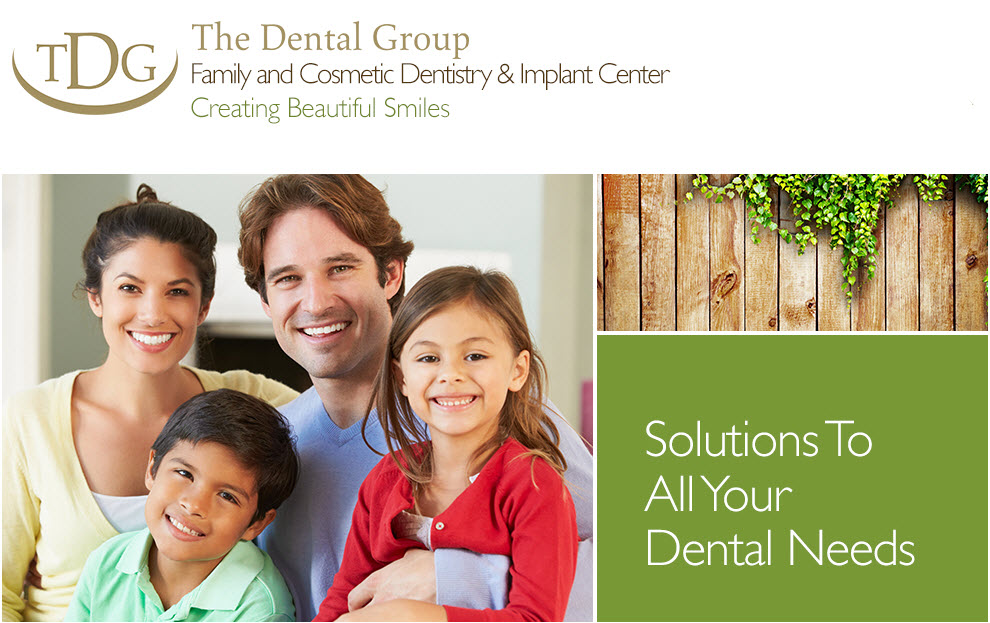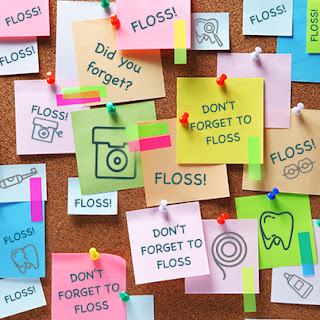If you burned the roof of your mouth eating something hot, like pizza, first try cooling your mouth down with a cold drink or a popsicle. Ice cream or yogurt can also do the trick. It’s best to stop eating the pizza until it cools, to prevent damaging your mouth further.
Once the pain has subsided, you can gargle salt water to clean and disinfect the area. Medical professionals recommend using a mixture of ½ teaspoon of salt and 8 ounces of water.
If you’re in a lot of pain, you can take an ibuprofen or try a topical numbing spray. However, if you think the burn is serious, contact your doctor right away. Most burns are first-degree burns, but second- and third-degree burns can cause long-lasting nerve damage to your palate. Symptoms of these types of burns include severe pain, blistering, swelling, redness, or white patches.
It can take up to a week for the skin in your mouth to heal. While your mouth is healing, avoid food with sharp edges like chips, which can aggravate the roof of your mouth. Spicy foods, citrus, mint, and alcohol can also irritate the burn. Additionally, if your mouth doesn’t heal within a few days to a week, follow up with your doctor.
Wednesday, November 28, 2018
Thursday, August 30, 2018
To Take Good Care of Your Teeth, Follow These Six Brushing Tips
Brushing everyday is one of the best ways to take care of your teeth. However, it's not just that simple. For optimal dental care, follow these six tips.
1. Pick the right brush - Not all brushes are the same, and you need to choose one that fits your mouth.
2. Brush the right way - You should hold your brush at a 45-F-degree angle to your gums and use an up-and-down motion with short strokes.
3. Take your time - While brushing twice a day is recommended, three times is probably best. Also, whenever you brush, make sure you do it for at least two minutes.
4. Don't overdo it - Conversely, don't brush too much or for too long, as this can wear down enamel and hurt your gums.
5. Keep it clean - Always rinse your brush, as germs can linger on it.
6. Let it go - Make sure to replace your toothbrush every three to four months or if the bristles are becoming frayed or broken.
1. Pick the right brush - Not all brushes are the same, and you need to choose one that fits your mouth.
2. Brush the right way - You should hold your brush at a 45-F-degree angle to your gums and use an up-and-down motion with short strokes.
3. Take your time - While brushing twice a day is recommended, three times is probably best. Also, whenever you brush, make sure you do it for at least two minutes.
4. Don't overdo it - Conversely, don't brush too much or for too long, as this can wear down enamel and hurt your gums.
5. Keep it clean - Always rinse your brush, as germs can linger on it.
6. Let it go - Make sure to replace your toothbrush every three to four months or if the bristles are becoming frayed or broken.
Thursday, June 28, 2018
We know that flossing can be a task that’s easy to forget
We know that flossing can be a task that’s easy to forget, but by flossing daily, you can actually help to prevent gum disease, tooth decay and bad breath!
Brushing your teeth can’t remove plaque from your teeth and gums the way that floss can, which is why we encourage our patients to make flossing a daily ritual.
Floss comes in all kinds of flavors and sizes, and you can do it just about anywhere.
Whether it’s, at your desk, or in the comfort of your own home, you can take your floss with you wherever you go!
Brushing your teeth can’t remove plaque from your teeth and gums the way that floss can, which is why we encourage our patients to make flossing a daily ritual.
Floss comes in all kinds of flavors and sizes, and you can do it just about anywhere.
Whether it’s, at your desk, or in the comfort of your own home, you can take your floss with you wherever you go!
Thursday, March 8, 2018
Did you know Apples can clean your teeth when a toothbrush isn’t handy?
We've all heard the expression "an apple a day keeps the doctor away." But perhaps that should be changed to dentist. In addition to being good for your health, apples are also quite good for your teeth. In fact, if you find yourself without a toothbrush, an apple can fill in nicely.
Apples actually act like toothbrushes because of their fiber-rich flesh. This works like a scrub on not only your teeth, but your tongue and gums as well. An apple can also help remove food particles that are hiding out between your teeth and sticking to your gums.
As well as cleaning your teeth, because they are mildly acidic and slightly astringent, apples can also help get rid of plaque and stains. On top of that, apples can freshen breath. Is there nothing this super fruit can't do? The next time you have an after lunch meeting and forgot your toothbrush, head down to the cafeteria and grab an apple instead.
Wednesday, January 31, 2018
Knocking out a permanent tooth is a true dental emergency
Knocking out a permanent tooth is a true dental emergency. Don’t be afraid to contact your dentist right away. If you knock out a permanent tooth, here is what to do.
1. Hold the tooth by the crown and not the root so as not to spread bacteria unto the root.
2. Rinse dirt or any debris off with room temperature water but be gentle with the root.
3. Try to reinsert the tooth until you get to the dentist and hold it into place.
4. If reinserting is not an option, keep it moist by covering it with milk or water.
5. For optimal outcome, try to get to a dentist within 30 minutes.
Thursday, October 5, 2017
How You Can Eat and Drink Your Way to Better Dental Health
We all know that brushing and flossing helps maintain our teeth, but did you know that these foods and beverages can also help with dental health?
Cheese - Cheese can reduce levels of acid in our mouths.
Tea - Polyphenols, which are found in black and green teas, slow the growth of bacteria that causes gum disease and cavities.
Milk - Milk lowers the level of acid in the mouth.
Raisins - Raisins contain phytochemicals, which may kill cavity-causing plaque bacteria.
Cranberries - Just like tea, cranberries have polyphenols, which may prevent plaque from sticking to teeth.
Gum - As long as it's sugarless, gum creates more saliva, which clears away bacteria.
Cheese - Cheese can reduce levels of acid in our mouths.
Tea - Polyphenols, which are found in black and green teas, slow the growth of bacteria that causes gum disease and cavities.
Milk - Milk lowers the level of acid in the mouth.
Raisins - Raisins contain phytochemicals, which may kill cavity-causing plaque bacteria.
Cranberries - Just like tea, cranberries have polyphenols, which may prevent plaque from sticking to teeth.
Gum - As long as it's sugarless, gum creates more saliva, which clears away bacteria.
Thursday, July 13, 2017
Radiation Risks? The Truth about Dental X-Rays
Often, a family trip to the dentist will feature the use of an x-ray camera. The dental hygienists will cover you or your children with a heavy apron and make you chomp on some bitewings, while the camera moves and clicks around you. Of course, the images produced by the x-rays have a purpose: cavities, jawbone degradation, and other oral health issues are made easily visible, allowing the dentist to address these issues directly. However, x-rays are a form of radiation, and some people are concerned with that exposing someone to dental x-rays will cause cancer. These concerns are especially strong for parents taking their children to the dentist.
X-rays are a type of ionizing radiation, and ionizing radiation has been shown to cause cancer. Ionizing radiation, upon passing through the body, strip electrons from the atoms this energy passes. The resulting protons, known as free radicals, then can damage the cells of the body. While these cells return to normal most of the time, on rare occasions the cells will heal with some abnormalities. These abnormal cells, consequently, can grow into cancer. From this alone, people believe that dental x-rays will cause cancer.
However, you’re always exposed to ionizing radiation. On average, your body is exposed to 3.1 millisieverts (mSv) of natural radiation alone per year. At .005 mSv, the radiation you receive from the aforementioned dental x-ray is less than 1.6% of your daily background radiation exposure. You are exposed to the same level of radiation just from sunlight each day. Additionally, each x-ray is an individual dose rather than constant exposure, which is another factor in the cancer risks of radiation exposure. X-rays only increase the odds of dying of cancer by 1 in 2,000; compare this to the natural 1 in 5 chance you have of dying of cancer.
Moreover, there are precautions in place for younger patients to help minimize their exposure. Technically, children do have a higher risk of developing cancer from radiation than adults, so dentists make up for it with stricter safety measures. Lead aprons are almost ubiquitous, but many doctors will also reduce the amount of radiation emitted by the camera when taking x-ray images of pediatric patients. The same precautions can be given to pregnant women, as fetuses are assumed to be just as vulnerable as children. Your children could be receiving special considerations regarding radiation exposure risks already.
Ultimately, the benefits of detecting an oral health issue as early as possible far outweighs the negligible cancer risk. Not only are healthy teeth and gums alone something worth keeping, but many recent studies have shown connections between oral health and overall bodily health as well. Being able to detect and address these issues is paramount to your health and your children’s health. So, the next time your dentist readies the bitewings and camera, don’t be afraid. The benefits are high, the risk is low, and the dentist is likely being extra careful with your children anyways.
X-rays are a type of ionizing radiation, and ionizing radiation has been shown to cause cancer. Ionizing radiation, upon passing through the body, strip electrons from the atoms this energy passes. The resulting protons, known as free radicals, then can damage the cells of the body. While these cells return to normal most of the time, on rare occasions the cells will heal with some abnormalities. These abnormal cells, consequently, can grow into cancer. From this alone, people believe that dental x-rays will cause cancer.
However, you’re always exposed to ionizing radiation. On average, your body is exposed to 3.1 millisieverts (mSv) of natural radiation alone per year. At .005 mSv, the radiation you receive from the aforementioned dental x-ray is less than 1.6% of your daily background radiation exposure. You are exposed to the same level of radiation just from sunlight each day. Additionally, each x-ray is an individual dose rather than constant exposure, which is another factor in the cancer risks of radiation exposure. X-rays only increase the odds of dying of cancer by 1 in 2,000; compare this to the natural 1 in 5 chance you have of dying of cancer.
Moreover, there are precautions in place for younger patients to help minimize their exposure. Technically, children do have a higher risk of developing cancer from radiation than adults, so dentists make up for it with stricter safety measures. Lead aprons are almost ubiquitous, but many doctors will also reduce the amount of radiation emitted by the camera when taking x-ray images of pediatric patients. The same precautions can be given to pregnant women, as fetuses are assumed to be just as vulnerable as children. Your children could be receiving special considerations regarding radiation exposure risks already.
Ultimately, the benefits of detecting an oral health issue as early as possible far outweighs the negligible cancer risk. Not only are healthy teeth and gums alone something worth keeping, but many recent studies have shown connections between oral health and overall bodily health as well. Being able to detect and address these issues is paramount to your health and your children’s health. So, the next time your dentist readies the bitewings and camera, don’t be afraid. The benefits are high, the risk is low, and the dentist is likely being extra careful with your children anyways.
Subscribe to:
Posts (Atom)




